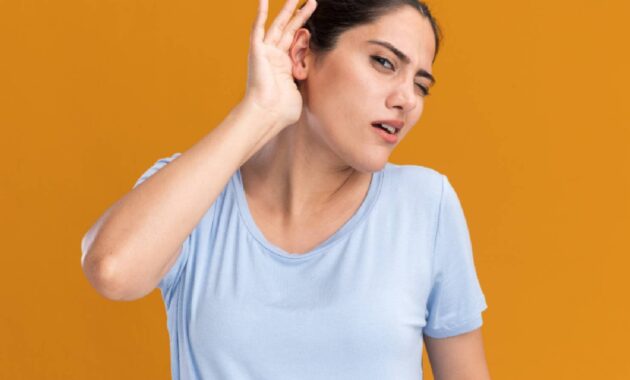No matter how much we try to be careful, one dip in the swimming pool or even a regular hair wash is enough to get water in your ear. We can safely say that this feeling of water trapped in your ear makes you feel very restless, as you relentlessly jiggle your ear, and try to get it out! Well, there are proper ways and techniques that you can adopt to get water out of your ear.
Health Shots got in touch with ENT specialist Dr Jyotirmay S Hegde, who spills the beans on how to get rid of this problem.
Also Read: Have you heard about these 5 superfoods to help you prevent ear infections
Why does water enter ears?
Water can enter our ears during activities such as swimming, showering or washing our hair, or just about anything that involves our head touching water. “The ear canal is made in such a way that it mostly self-cleans, with earwax helping to repel water and foreign particles. However, sometimes water can get trapped in the ear canal, especially if the natural cleaning process is disrupted or if the ear anatomy makes drainage difficult,” explains Dr Hegde.
How to get water out of your ear?
Here are five ways to get water out of your ears:
1. Gravity tilt
Tilt your head to the side, the affected ear down, and gently jump on one foot. Gravity can help the water drain out. This method uses gravity to encourage the water to flow out of the ear canal.

2. Yawning or chewing
Yawn or chew gum to stimulate the muscles around the ears. “These actions can help open the Eustachian tubes, facilitating drainage,” says Dr Hegde.
Select Topics of your interest and let us customize your feed.
PERSONALISE NOW
3. Heat and steam
Apply a warm compress or use a hairdryer on low heat from a distance. The warmth can help evaporate the trapped water or promote movement for drainage.
4. Rubbing alcohol and vinegar drops
Mix equal parts of rubbing alcohol and white vinegar, and put a few drops in the ear. This mixture can help evaporate the water and prevent bacterial growth.
5. Over-the-counter ear drops
Use over-the-counter ear drops designed to remove water from the ears. These drops often contain a drying agent to help clear moisture from the ear canal.
Also Read: Ear infection in children: 6 ways to treat it at home
What not to do when there is water in your ear?
Well, firstly, don’t panic! “Please beware of inserting objects like cotton swabs or fingers into the ear canal to remove water, as this can push the water further in, risk damaging the delicate ear canal, or even puncture the eardrum,” says Dr Hegde.
How to prevent water from going in your ears?
Here are a few ways to make sure that water does not get trapped in your ears.
1. Earplugs or swim caps
Wearing earplugs or a swim cap can provide a barrier to prevent water from entering the ears during water activities.
2. Tilt and shake
After swimming, tilting your head and shaking it gently can help drain excess water from the ear canal.
3. Dry ears thoroughly
Ensure you dry your ears thoroughly after swimming or showering, using a soft towel or tilting your head to let water drain out.

4. Custom-fitted earplugs
Consider getting custom-fitted earplugs that provide a secure seal, especially if you swim frequently.
Will water in your ears come out naturally?
In many cases, water may come out naturally as you go about your daily activities, especially if you tilt your head or allow gravity to assist. “However, if the water remains trapped, it can lead to discomfort, increased risk of infection, and potential hearing issues. If water remains trapped in the ear for an extended period or if you experience pain, hearing loss, or signs of an ear infection (such as drainage, swelling or redness), it’s essential to seek medical attention,” explains Dr Hegde.
Persistent issues with trapped water or recurrent ear infections may require professional evaluation to rule out underlying problems with the ear anatomy or function.
#water #ear #tips
